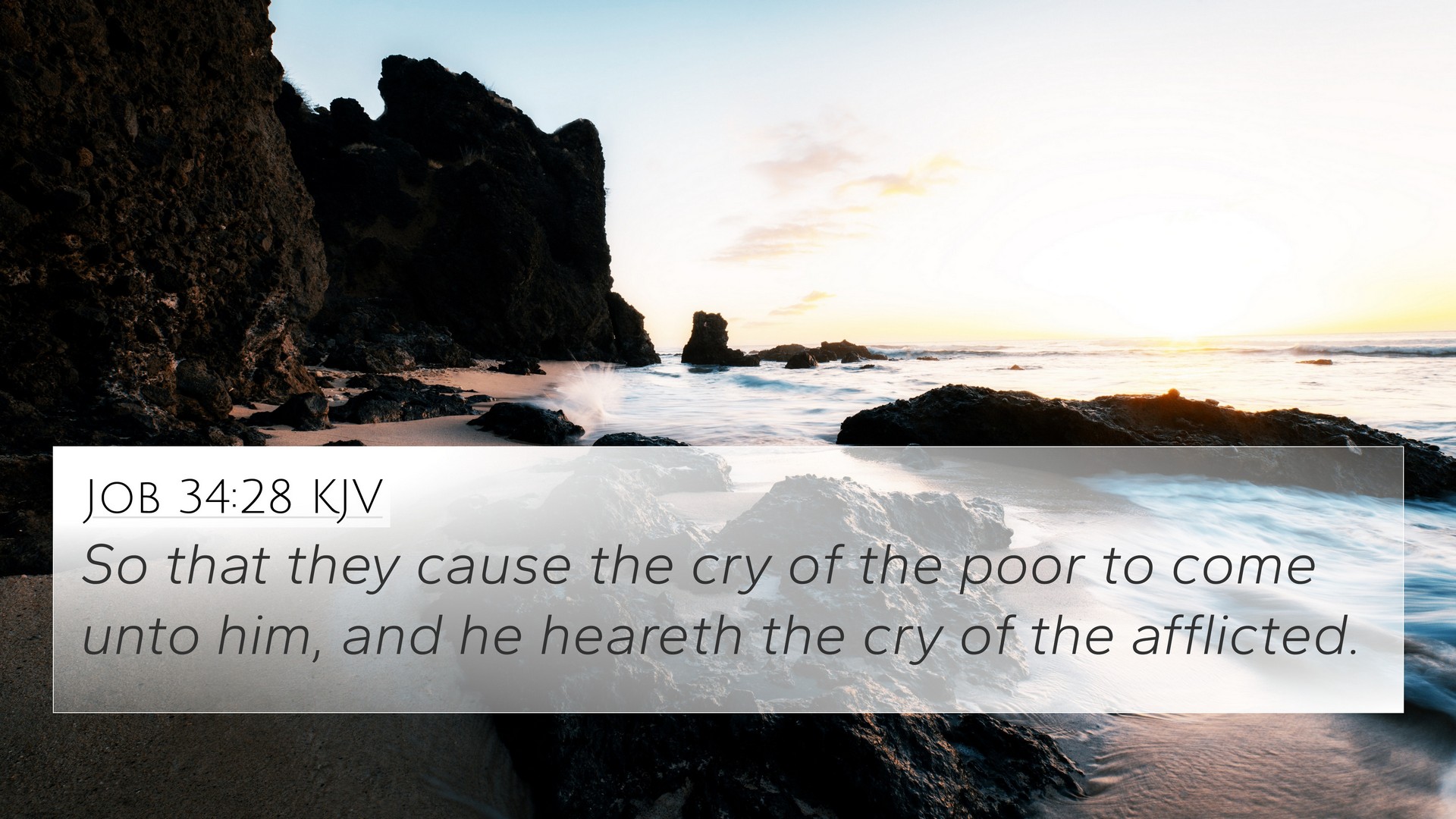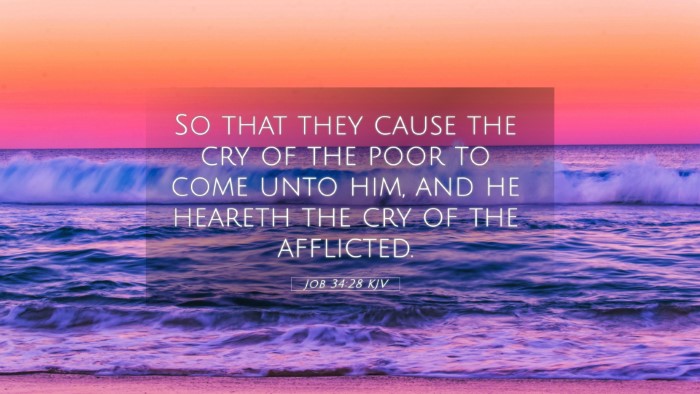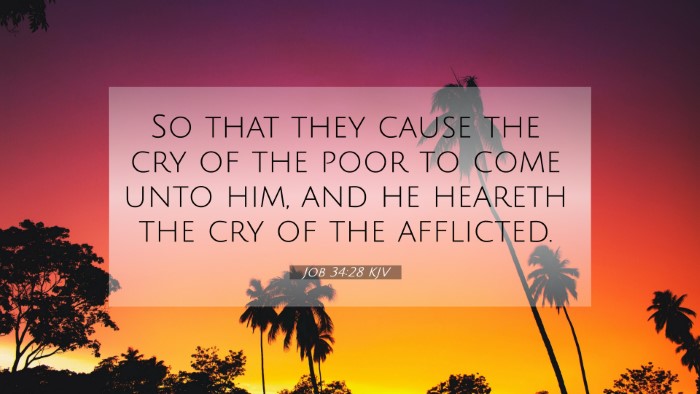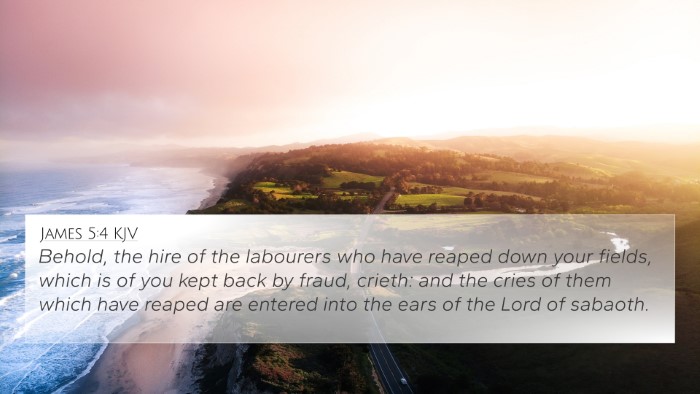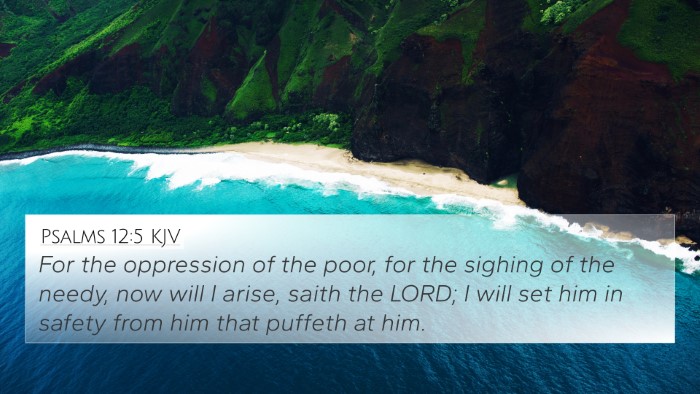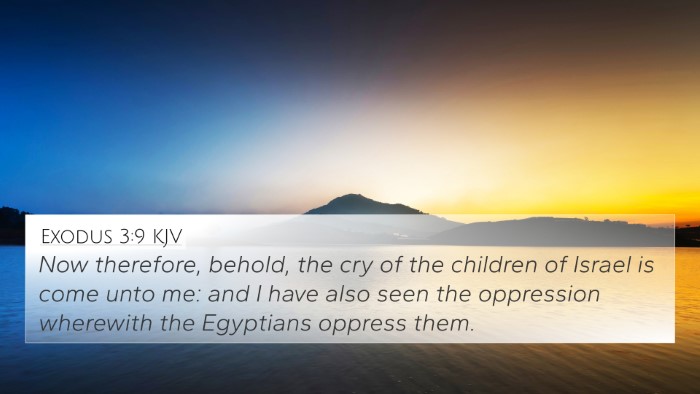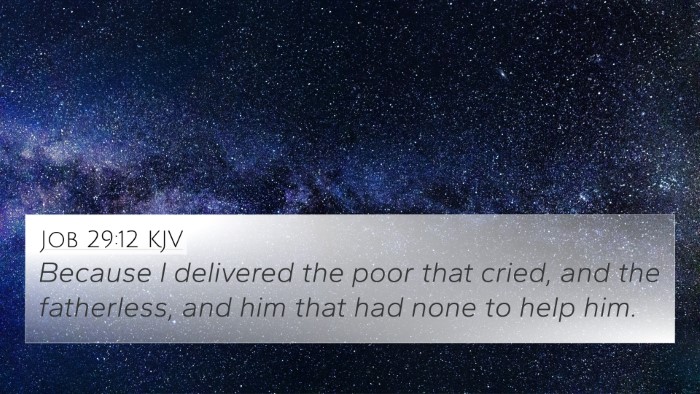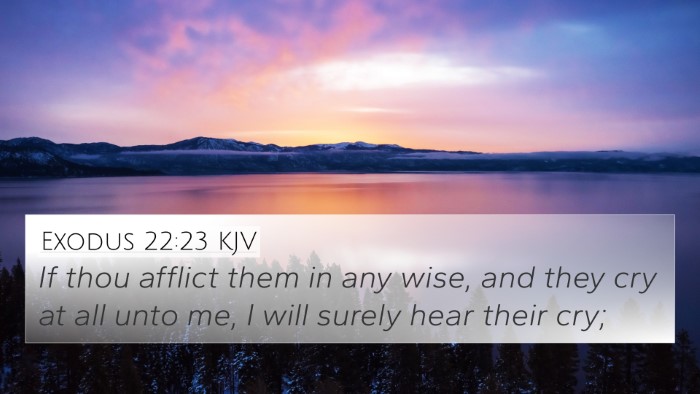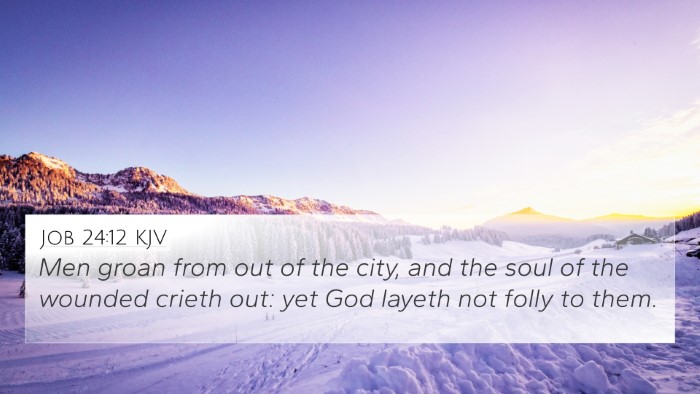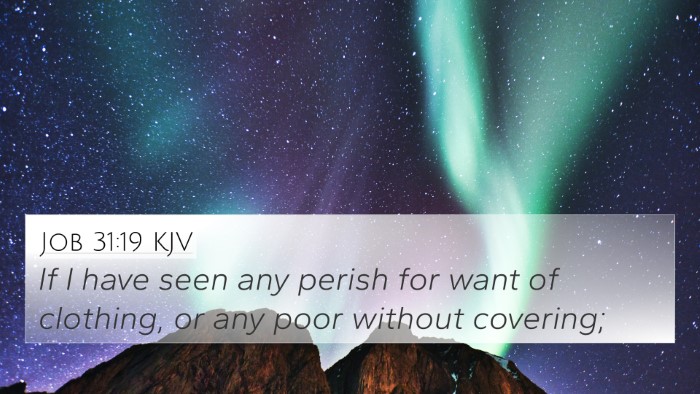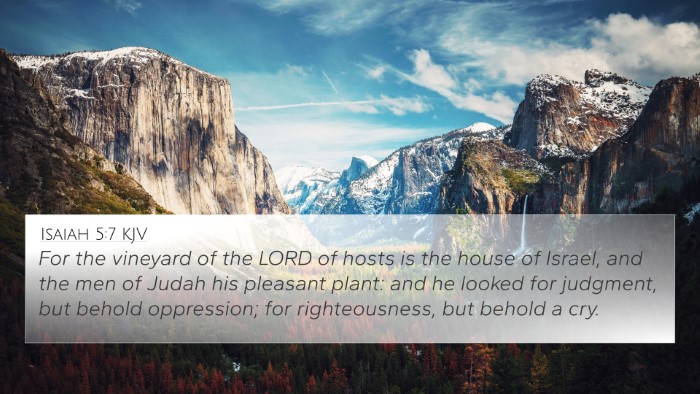Understanding Job 34:28
Job 34:28 states: "So that they cause the cry of the poor to come unto him, and he heareth the cry of the afflicted." This verse serves as a pivotal point in understanding the nature of God's justice and compassion, particularly towards the marginalized and oppressed.
Verse Meaning and Commentary
Commentaries on this verse highlight several key themes:
-
God's attentiveness to the oppressed:
Matthew Henry notes that God is not indifferent to the cries of the poor. He hears their pleas and responds to their suffering. This underscores the idea that while God may be silent at times, His awareness of human suffering is ever-present.
-
The role of human agency:
Albert Barnes emphasizes that the activities of people—whether just or unjust—can lead to the suffering of others. The verse implies a moral obligation for individuals to act justly, as their actions can directly impact the lives of the marginalized.
-
Divine retribution:
Adam Clarke elaborates on the concept of divine justice, noting that God's hearing of the cries of the afflicted suggests that He will act in response to their needs. There is a belief that those who oppress others will face divine consequences.
Thematic Connections
This verse is significant not only within its own context but also across the entirety of Scripture. It aligns with several other biblical passages that address themes of justice, compassion, and God’s response to suffering:
- Psalms 34:15: "The eyes of the Lord are on the righteous, and His ears are open to their cry."
- Psalms 146:7: "Who executes justice for the oppressed, who gives food to the hungry."
- Proverbs 21:13: "Whoever closes his ear to the cry of the poor will himself call out and not be answered."
- Lamentations 3:34-36: "To crush underfoot all prisoners of the earth, to deny a man justice in the presence of the Most High."
- Micah 6:8: "He has shown you, O mortal, what is good. And what does the Lord require of you? To act justly and to love mercy and to walk humbly with your God."
- James 1:27: "Religion that God our Father accepts as pure and faultless is this: to look after orphans and widows in their distress."
- Luke 18:7: "And will not God bring about justice for His chosen ones, who cry out to Him day and night?"
Cross-Referencing Biblical Texts
The interconnectedness of biblical themes emphasizes the importance of cross-referencing verses to gain deeper understanding. Tools for Bible cross-referencing, such as a bible concordance or bible cross-reference guide, can be utilized for this purpose. These resources assist in exploring:
- Connections between Bible verses that discuss divine justice and the plight of the poor.
- Thematic Bible verse connections that reveal how prophetic and apostolic teachings echo similar messages.
- Cultural and historical insights into societal oppressions that mirror modern contexts.
Exploring Inter-Biblical Dialogue
Engagement in cross-reference Bible study allows believers to uncover how different scriptures support and illuminate each other. For example:
- The verses from the Gospels reflecting Jesus' ministry among the marginalized may be understood alongside Job's lament regarding justice.
- Comparative study of Pauline epistles can reveal how early Christians viewed social justice in light of Old Testament teachings.
- Cross-referencing Psalms with New Testament teachings enriches the understanding of God's character towards the oppressed.
Conclusion
Job 34:28 serves as a powerful reminder of God's commitment to justice and compassion. The verse encourages believers to reflect on their own actions towards those in need, and it challenges the faithful to seek God's will in promoting justice in the world. By employing bible cross-reference systems and tools, such as comprehensive Bible cross-reference materials, individuals can deepen their understanding of Scripture and its relevance to contemporary issues.
